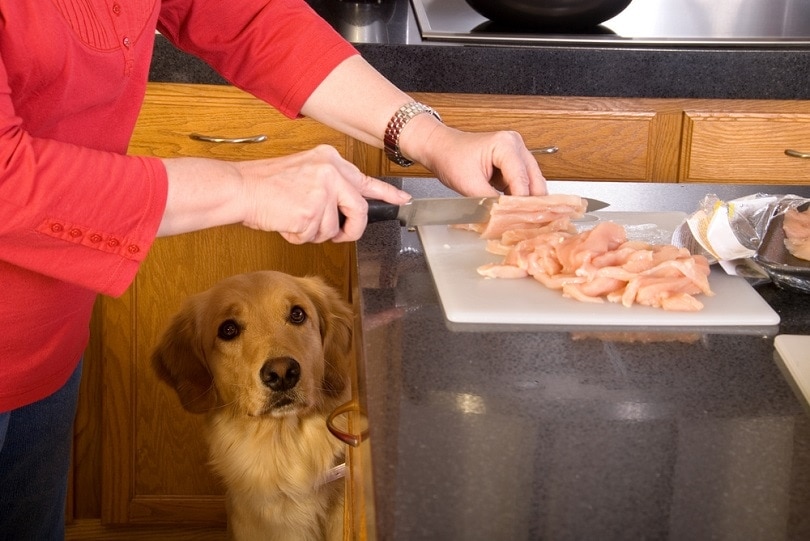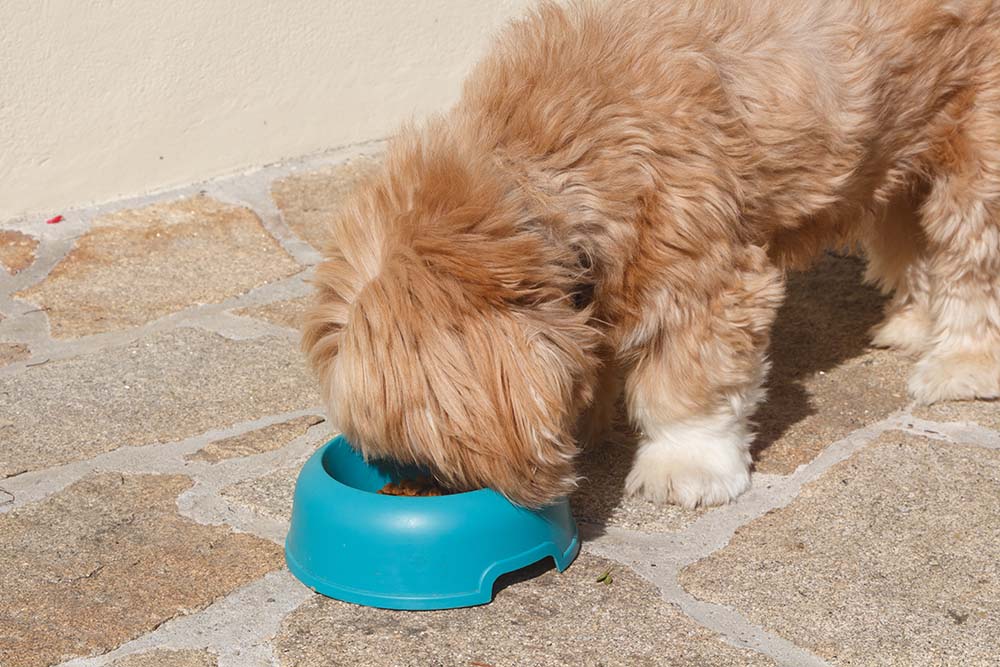Why Does My Dog Sleep So Close to Me? 4 Reasons & Vet-Approved Tips

Updated on
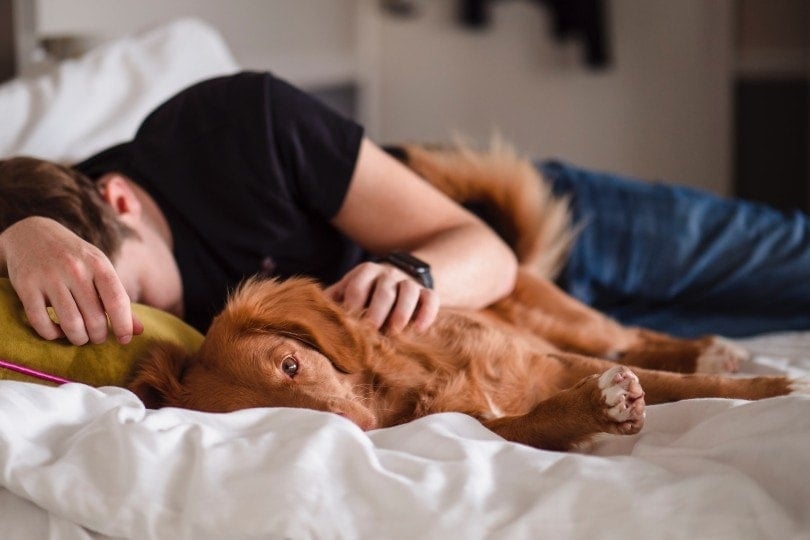
Dogs of nearly any breed, age, and size love to lie close to or on top of their owners, whether they are sleeping or lounging on the couch. Although this is a relatively positive behavior, many owners have a problem with it, especially if the pooch in question is on the larger side. Even if you don’t have a problem with your dog lying so close to you, you might be wondering why they do this in the first place.
The main reason dogs prefer sleeping with their owners is because this behavior is instinctive. In this article, we are going to explain four reasons why dogs sleep or lie close to their owners. To learn more about this behavior, as well as what you can do about it, keep reading!
Top 4 Reasons Why Your Dog Sleep So Close to You
This article assumes that your dog is a healthy, vaccinated pet with no contagious diseases that they can pass to you via close contact. If your dog has a condition that you think might be contagious, seek veterinary care for your pet. For information on your own safety with regards to these contagious ailments, seek the advice of your healthcare provider.
1. It’s in Canine Genes to Sleep Against You
Even though your furry friend is likely gentle and loving to people, they descended from wolves. Although many characteristics shared by wolves were bred out of domesticated dogs, others were not. Most notably, domesticated dogs are pack animals, just like their wolf ancestors.
In the wild, wolves are pack animals, causing them to lie with their other pack members for warmth and security. Layingin this way is necessary for wolf survival. The habit is instinctively ingrained in puppies of both wild and domesticated dogs.
Both wolf and domesticated dog puppies are born in litters. As they are still puppies, the entire litter will sleep in little dog piles for additional warmth and protection. This behavior instinctively stays with them as they get older.
With this in mind, this behavior is simply in their genes. There’s not much they can do about it because it has allowed them and their descendants to survive for centuries.

2. Protection
Because sleeping in piles helps to protect the pack, your dog could also be doing it to actively protect you (or themselves). A comfortable, tame, and well-trained pet dog would definitely see you as part of their social circle. As a result, your dog likely wants to lay close to you so that they both feel safe and are able to protect you – though take note that not all dogs are good in actual emergency situations!
Even if there is not an active threat, some dogs often sit in a protective or defensive mode just in case. Certain breeds are more likely to display these traits than others. However, anecdotally just about any dog may decide that it’s their job to “have your back” at all times.
3. Sleeping With Your Dog Helps You Bond
As you probably know, dogs are a species that become incredibly attached to their owners. They want to strengthen their bonds, and they do multiple things to do so.
Namely, dogs will sleep very close to their owners possibly as a way to strengthen the bond with them. Because sleeping in packs shows trust and mutual support for wolves, dogs are thought to interpret it in much the same way. In essence, we do play an important role in our pets’ social lives, and being close to us is much like how our significant others choose to share a bed with us.
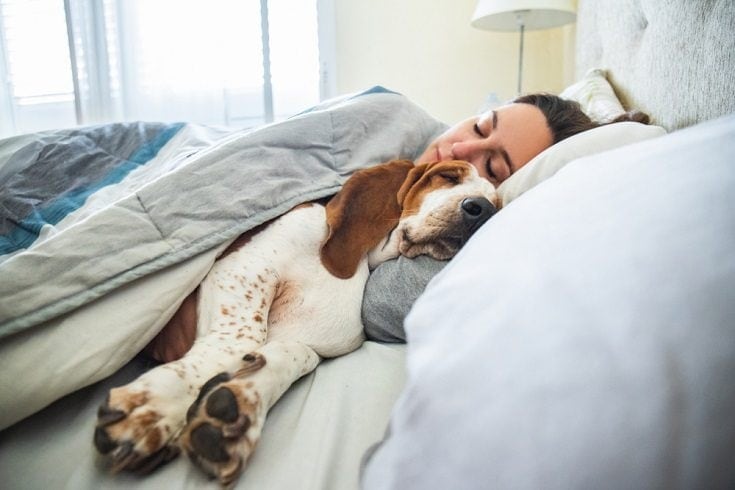
4. Separation Anxiety
A much more worrisome reason that your dog sleeps so close to you is separation anxiety. Although it is normal for dogs to miss their owners, it is not considered normal for them to have separation anxiety, and it is something that needs to be addressed for the dog’s long-term health.
By sleeping incredibly close to you, your dog will be alerted as soon as you leave, whether you leave the couch or the house. Separation anxiety may be the cause of your dog’s clingy behavior if you notice signs of anxiety every time you leave your home.
What to Do if Your Dog Sleeps Next to You
1. Ignore Your Dog
If your dog sleeps next to you or really close to you, there isn’t anything you should necessarily be worried about in most instances. It goes back to their instinctive nature, and it is almost always a sign of affection and love. Unless there is an actual reason that your dog should not be laying so close to you (such as a medical reason on your doctor’s instructions), it is totally fine to just ignore this behavior entirely.
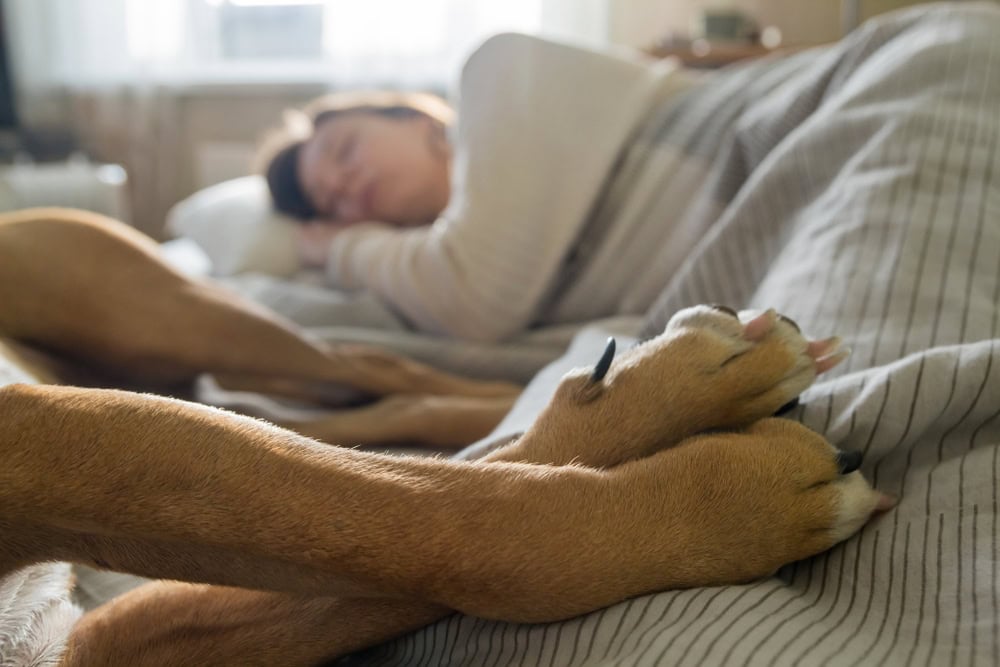
2. Reward Your Dog for Sleeping Elsewhere
If you have a large dog that smothers you or you have a dog allergy, you may want to encourage your dog to sleep elsewhere. If that’s the case, you need to create a designated place for your dog to sleep in and reward them for sleeping there. Crate training is a very useful tool for this goal.
You may also buy a comfortable dog bed and place it close enough to you so that your dog feels connected to you without outright lying on top of you. It may take some time, but rewarding your dog every time they sleep in their bed will train them to associate the bed with rewards and positive encouragement.
Continue this process until your dog learns that they are supposed to sleep there. You may need to seek the help of a dog trainer to assist in this process.
3. Target Separation Anxiety
In the case that your dog lays next to you because of separation anxiety, it is crucial to target the anxiety specifically. Separation anxiety can be detrimental to your dog’s long-term health because it regularly puts their body in a state of stress.
Targeting separation anxiety is easier said than done. That being said, there are a couple of things you can do to reduce anxiety every time you leave.
- Create a comfortable and safe sleeping area for your dog to stay in when you are far away.
- Have your dog crate trained.
- Feed your dog before you leave (but do not overfeed your pet!).
- Play with your dog and give them ample exercise before you leave.
- Take your dog outside to use the bathroom before you leave.
- Consider buying interactive toys your dog can play with while you’re away.
If you try these ideas and your dog doesn’t seem to have any changes in their anxiety, you can talk to a vet or a dog trainer about what to do. A lot of times, separation anxiety can be fixed with proper behavior modification training programs. A vet or dog trainer will be able to give you additional tips to combat the problem.
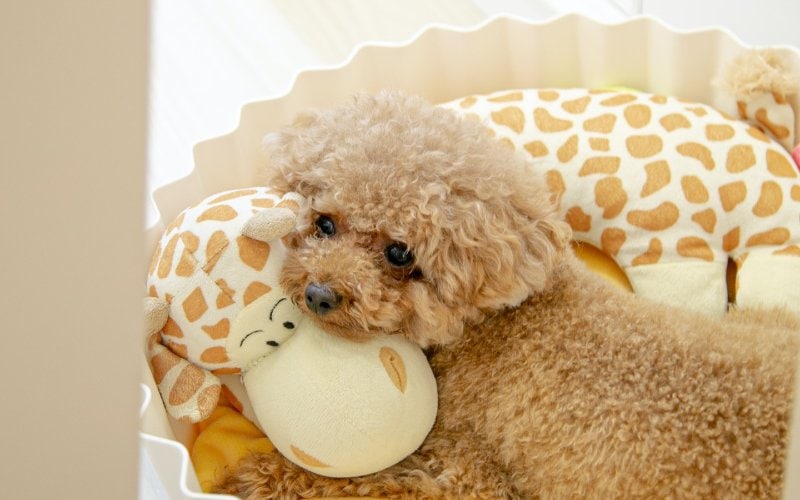
Final Thoughts
If your dog sleeps or lays close to you, take it as a compliment. It likely means that your dog views you as part of their pack and wants to be close with you either for protection or bonding. The only time you should be worried about this behavior is if your dog is smothering you, you are allergic to them, or they have separation anxiety.
With proper training and exercise, you can eventually teach your dog to not lay on top of you if that’s what you desire. Unless there’s a medical reason as to why you don’t want your dog to lay on you, it’s totally fine to allow them to continue this behavior.
You might also like:
- How Many Hours Does a Dog Sleep? The Answer is Fascinating!
- 8 Common Dog Sleeping Positions & What They Mean
Featured Image Credit: Jamie Street, Unsplash



